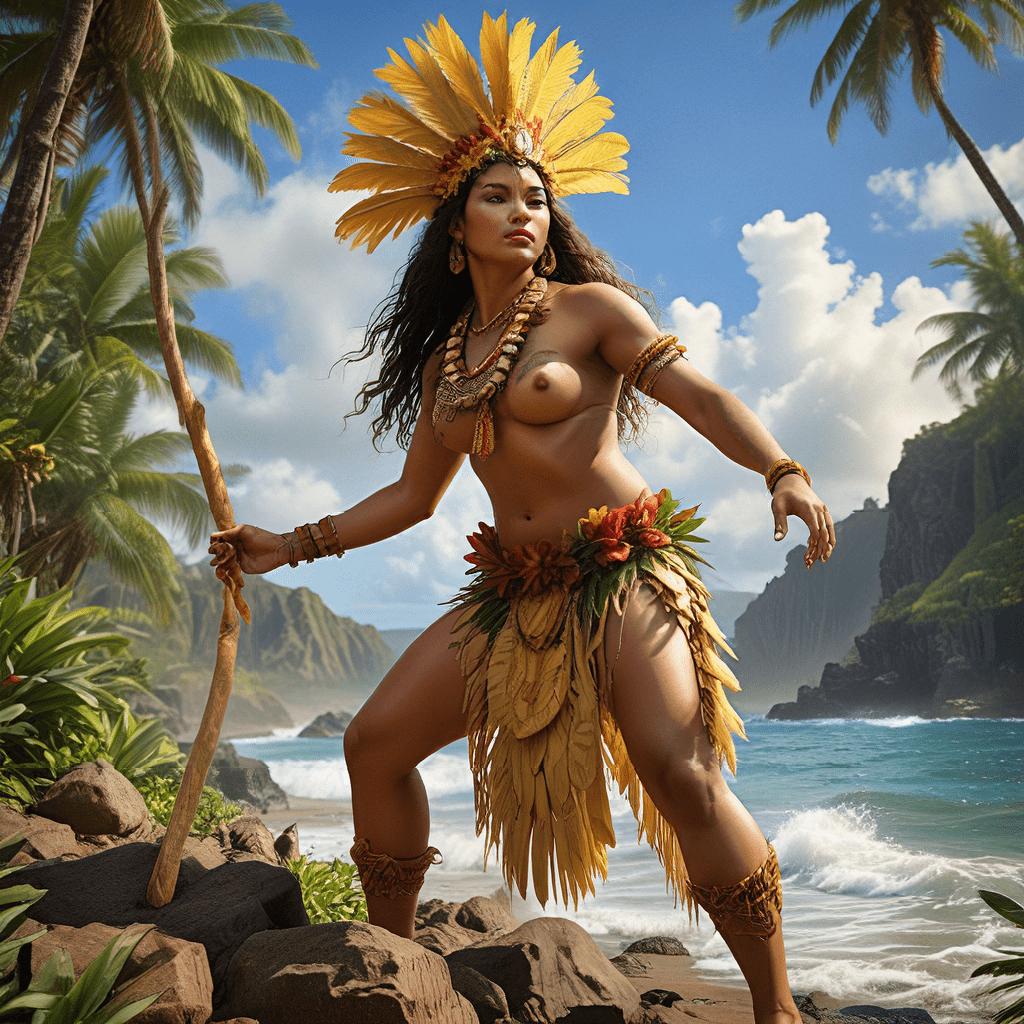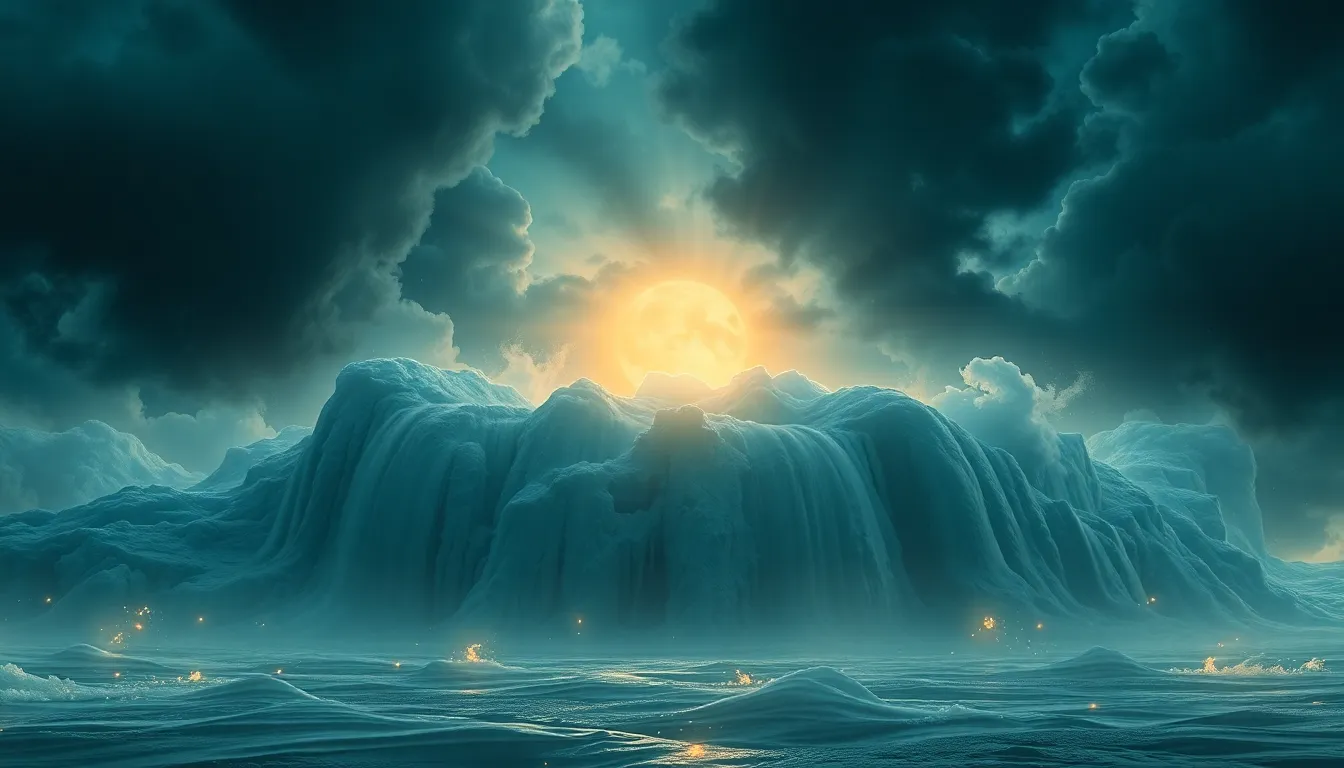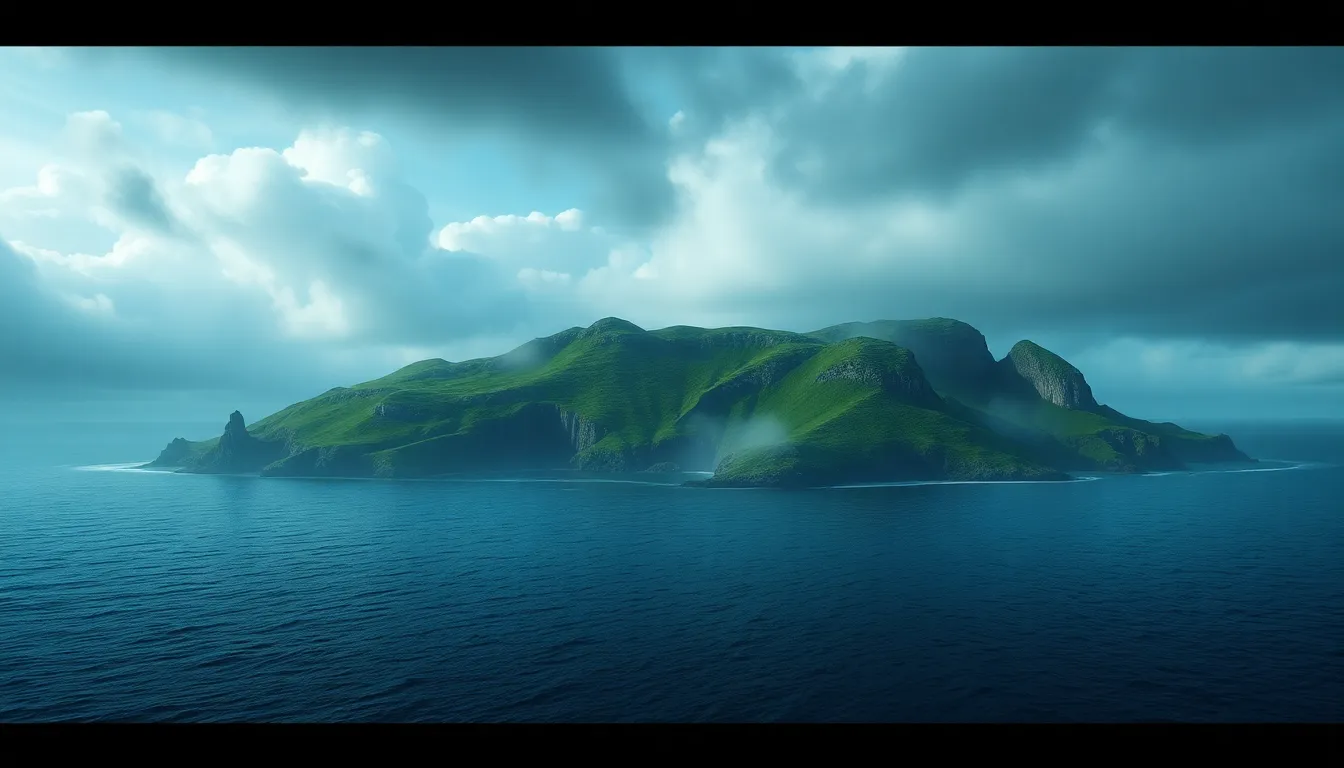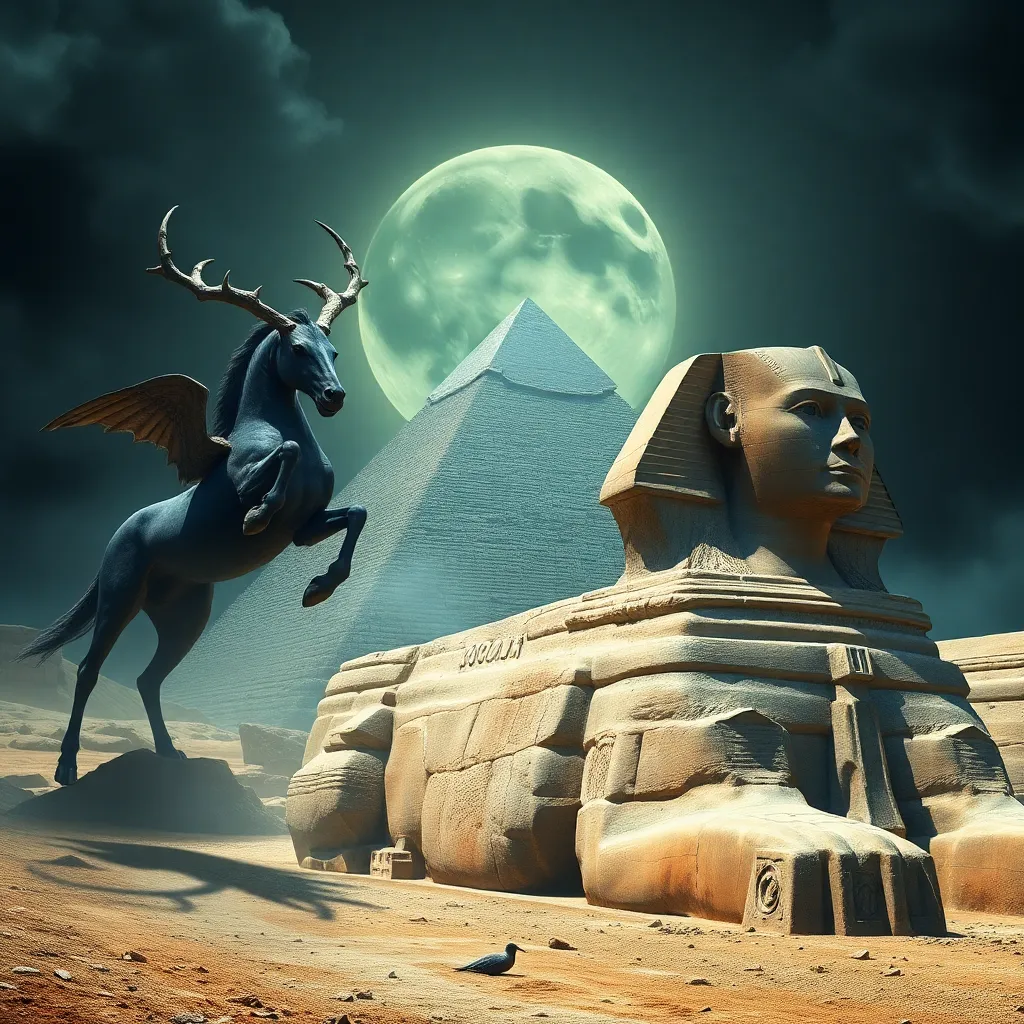Polynesian Mythology: A Shared Heritage
Hawaiian beliefs are deeply rooted in the rich tapestry of Polynesian mythology, a shared heritage that binds together the islands of the Pacific. This ancient tradition, passed down through generations, offers a profound understanding of the world, its origins, and the forces that govern it. Polynesian mythology encompasses a vast collection of stories, legends, and beliefs that have shaped the cultures and values of the people throughout the region, including Hawaiʻi.
The Polynesian diaspora, spanning thousands of miles across the vast Pacific Ocean, has left an enduring legacy in the form of shared traditions, beliefs, and cultural practices. The ancestors of the Hawaiians, who were among the last to settle the islands, carried with them a treasure trove of knowledge and wisdom embodied in their mythology. This mythology served as a vital guide for navigating the challenges of life, understanding the natural world, and connecting with the spiritual realm.
The stories of Polynesian mythology are not mere tales but powerful narratives that illuminate the origins of the universe, the creation of the islands, the genealogy of gods and mortals, and the intricate web of relationships that bind the cosmos. These stories reveal a deep respect for nature, a reverence for ancestors, and a belief in the interconnectedness of all things. The legacy of Polynesian mythology is woven into the fabric of Hawaiian culture, influencing everything from everyday life to religious practices, art, and music.
The Origin of the Hawaiian Islands
One of the most intriguing aspects of Hawaiian mythology is the story of the origin of the Hawaiian islands. According to legend, the islands were created by the demigod Kū, a powerful figure associated with fertility, agriculture, and the land. Kū, along with the other gods, embarked on a journey across the vast Pacific Ocean, seeking a new home for their people.
As they sailed, Kū became aware of a vast abyss in the ocean, a dark and swirling void. With his divine strength, he reached down and pulled up the earth from the depths, creating the islands. The islands, formed from the very essence of the ocean, became a testament to Kū's power and the gods' enduring bond with the earth.
The creation story of the Hawaiian islands reflects the deep respect Hawaiians have for nature and their understanding of the islands as a sacred place. The islands' volcanic origin, a testament to the relentless power of the earth, is woven into the mythology, emphasizing the interconnectedness of the land, the sea, and the heavens.
The Gods and Goddesses of Hawaiian Mythology
The pantheon of Hawaiian gods and goddesses is rich and diverse, reflecting the many aspects of the natural world and human existence. Some of the most prominent figures include:
Kū: As mentioned earlier, Kū is the god of fertility, agriculture, and the land. He is depicted as a powerful warrior, a protector of the people, and a provider of life-sustaining resources.
Kāne: Kāne is the god of creation, light, and knowledge. He is often considered the supreme deity, responsible for bringing order to the universe and creating the first humans.
Lono: Lono is the god of peace, prosperity, and agriculture. He is associated with the abundance of the harvest and the cycle of life.
Kanaloa: Kanaloa is the god of the sea, darkness, and the underworld. He is a powerful and unpredictable force, representing the dangers of the ocean and the mysteries of the afterlife.
Hina: Hina is the goddess of the moon, fertility, and the ocean. She is often depicted as a compassionate and nurturing figure, guiding mariners across the seas and overseeing the cycle of life and death.
These gods and goddesses play vital roles in Hawaiian mythology, influencing the lives of the people, shaping their values, and providing a framework for understanding the mysteries of the world.
The Importance of Ancestry and Lineage
Ancestry and lineage hold immense importance in Hawaiian beliefs, shaping the social structure and cultural identity of the people. Hawaiians trace their lineage back to their ancestral gods and goddesses, believing that their ancestors continue to watch over them and guide them.
The concept of ʻohana, meaning "family," extends beyond immediate relatives and encompasses an entire lineage, connecting individuals to a network of ancestors and descendants. The `ohana is a vital source of strength and support, and the preservation of lineage is essential for maintaining cultural identity and connection to the past.
The stories of genealogy, passed down through generations, teach about the importance of honoring ancestors, respecting elders, and carrying on the traditions of the past. By remembering their ancestors, Hawaiians reaffirm their connection to the land, their cultural heritage, and the spiritual realm.
The Role of Spirits and Supernatural Beings
The Hawaiian worldview encompasses a rich tapestry of spirits and supernatural beings, believed to inhabit the natural world and influence the lives of the people. These beings range from benevolent spirits, such as the akua (gods), to mischievous spirits, such as the aumakua (guardian spirits), to malevolent spirits, such as the moʻo (lizard-like spirits) and the night marchers (huakaʻi po).
Akua, the gods and goddesses, are revered as powerful and influential entities that shape the course of events and provide guidance to mortals. Aumakua, guardian spirits, are often associated with specific families or lineages and are believed to protect and guide their descendants. Moʻo, often depicted as lizard-like creatures, can be both benevolent and dangerous, depending on their nature and intentions. Huakaʻi po, night marchers, are believed to be the spirits of warriors or chiefs who roam the land at night, causing mischief or misfortune.
The belief in spirits and supernatural beings is deeply ingrained in Hawaiian culture, influencing everyday life, religious practices, and the way people interact with the natural world. These beings are both feared and respected, reminding people of the unseen forces that shape their lives.
The Concept of Mana and its Influence
Mana is a central concept in Polynesian mythology and plays a crucial role in Hawaiian beliefs. It represents a spiritual force or energy that permeates all things, from the gods and goddesses to the natural world and even humans. Mana is not something you can see or touch; it is felt as a powerful presence or influence that can be both positive and negative.
Individuals with high mana are considered powerful, influential, and often revered. Chiefs and priests, for example, were believed to possess a great deal of mana, giving them authority and respect. Conversely, those with low mana might be considered weak or unlucky. Mana can be gained through various means, including birthright, lineage, actions, and rituals.
The concept of mana is deeply intertwined with Hawaiian beliefs about the interconnectedness of everything. It explains why certain places, objects, and individuals are considered sacred or powerful. It also highlights the importance of respecting the natural world, as everything is believed to possess mana, even a seemingly ordinary stone or tree.
The Significance of Rituals and Traditions
Rituals and traditions play a vital role in Hawaiian culture, serving to connect people to their ancestors, gods, and the natural world. These practices are rooted in Polynesian mythology and are believed to maintain harmony within the community and with the sacred forces that govern the universe.
Some important Hawaiian rituals include:
Hula: The hula is a sacred dance that tells stories of gods, ancestors, and the natural world. It is an expression of reverence, gratitude, and a way to honor the spirits.
Lei: Lei, garlands made of flowers, leaves, or other materials, are used in rituals and special occasions. They symbolize love, respect, and connection to the natural world.
ʻŌlelo Noʻeau: Proverbial sayings and traditional chants, known as ʻŌlelo Noʻeau, offer wisdom, guide behavior, and preserve cultural knowledge.
- Lūʻau: The lūʻau, a traditional Hawaiian feast, is a celebration of food, community, and cultural heritage. It features various dishes, music, and storytelling, connecting people to their traditions.
These rituals and traditions are not merely cultural practices; they are expressions of faith, reverence, and a deep connection to the past and the spiritual realm. They serve as a reminder of the enduring legacy of Polynesian mythology and its influence on Hawaiian culture.
The Impact of Polynesian Mythology on Hawaiian Culture
Polynesian mythology has had a profound and enduring impact on Hawaiian culture, shaping its values, beliefs, and way of life. The stories, legends, and rituals of this rich tradition offer a framework for understanding the world, its origins, and the forces that govern it.
Some of the significant ways Polynesian mythology has influenced Hawaiian culture include:
Respect for Nature: The deep reverence for nature is evident in Hawaiian mythology, where gods and goddesses are associated with natural elements. This reverence translates into a deep understanding of the importance of caring for the land, water, and all forms of life.
Importance of Community: The emphasis on ʻohana (family) and lineage is a central theme in Polynesian mythology. This emphasis on community fosters a sense of belonging, responsibility, and support for one another.
Spiritual Beliefs: The belief in gods, spirits, and mana contributes to a spiritual worldview, where individuals are conscious of their connection to the unseen forces that shape their lives.
Values and Ethics: Polynesian mythology provides guidance on moral behavior and values. Stories of gods and heroes teach lessons about courage, honesty, compassion, and respect for others.
Art and Music: The themes and characters from Polynesian mythology are often depicted in Hawaiian art, music, and dance, preserving the culture's rich heritage.
Theories of Cultural Diffusion and Adaptation
The spread of Polynesian culture across the Pacific Ocean, including Hawaiʻi, is a fascinating story of exploration, adaptation, and cultural diffusion. Archaeological evidence and linguistic studies suggest that the ancestors of Hawaiians migrated from the islands of Polynesia, bringing with them their traditions, beliefs, and mythology.
As they settled in new islands, the Polynesians adapted their culture to their new environment. This adaptation process involved modifying their mythology, incorporating new elements, and integrating new knowledge and practices.
The presence of similarities in Polynesian mythology across different islands, such as the importance of gods, spirits, and mana, suggests a shared heritage and common origins. However, the differences in specific details and stories reflect the unique experiences and adaptations of different Polynesian groups.
The Interplay of Mythology and Everyday Life
Polynesian mythology is not merely a collection of stories; it is a living tradition that is woven into the fabric of Hawaiian life. It shapes how people understand the world, interact with one another, and make decisions.
From the daily rituals of offering prayers to the gods to the traditional practices of honoring ancestors, Polynesian mythology is a constant presence in Hawaiian life. The stories and beliefs of this rich tradition offer wisdom, guidance, and a sense of connection to the past and the forces that shape the present.
FAQ
What is the difference between Polynesian and Hawaiian mythology?
Hawaiian mythology is a subset of Polynesian mythology. While they share common themes and deities, Hawaiian mythology has evolved to reflect the unique cultural and environmental context of the Hawaiian islands.
What are some important deities in Hawaiian mythology?
Some prominent deities in Hawaiian mythology include Kū (god of fertility and the land), Kāne (god of creation and light), Lono (god of peace and prosperity), Kanaloa (god of the sea and darkness), and Hina (goddess of the moon and fertility).
What is the role of mana in Hawaiian beliefs?
Mana is a spiritual force or energy that permeates all things in Hawaiian beliefs. It is associated with power, influence, and the sacredness of individuals, objects, and places.
How does Polynesian mythology influence Hawaiian culture today?
Polynesian mythology continues to shape Hawaiian values, beliefs, and traditions, influencing aspects of everyday life, art, music, and spiritual practices. It provides a framework for understanding the world, honoring ancestors, and connecting to the spiritual realm.



